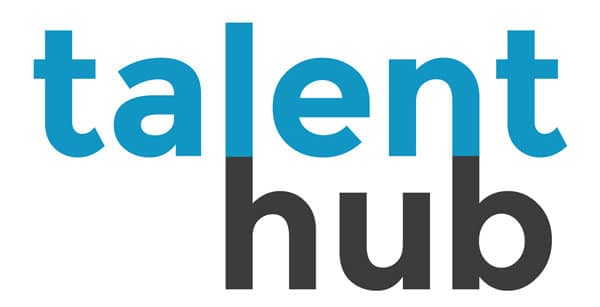The Salesforce market is certainly buoyant at the moment, and the subject of Salesforce salaries might be something that you’ve heard being discussed amongst your peers and online. You’ll possibly be asking yourself, “am I being paid what I should be?”.
Outside of actually securing and starting in a new role (maybe you’re very happy in your current one), it can be challenging to ensure that your own remuneration is keeping in line with the market when salaries are heading north.
Securing another job offer isn’t the only way
Anecdotally you may have heard of people being counter-offered by their existing company when they resign, and securing a new higher salary. You may be tempted to interview for a higher-paying job when you actually have no intention of leaving, in the hopes that a counteroffer will result in a boost in your salary. It seems quite easy. But it doesn’t need to be that complicated to secure a pay rise, and you can do it without potentially burning bridges with the offering company and potentially the recruiter if there’s one involved. Consider also that this strategy could introduce an element of distrust with your current manager. The relief of being able to keep you, even on a higher remuneration, could give way to caution once the dust has settled. It’s widely reported that up to 80% of people who accept counteroffers leave within 6 months, and whether that’s accurate or not, it’s just not a statistic that you need to have hanging over you.
Make approving a pay increase as easy as possible for your manager
Take into account the fact that your manager likely has a manager themselves, or a framework that they work to when it comes to salary budgets. What’s more, the person who actually signs off on your salary might not even know you or your work particularly well, if at all. It will benefit you tremendously if you make a business case for your manager, and if you present your case within the pay review/appraisal period for your organisation, if there is one.
Research
The Salesforce space is large, and we are all very connected globally online, with data such as salary surveys and job adverts easily available. These can potentially mislead you into believing that all salaries are rising sharply. For some, they are, but not for every job type, and this could cause you to feel dissatisfied with your salary, unnecessarily.
Understanding current market salaries is a good place to start. Research comparable salaries for your job title, with your skill set and experience, in your industry, in your city. You can do this by speaking with peers, previous managers, and specialist recruiters who have up-to-date information. A salary survey is really too broad to be accurate, and often outdated, given that they tend to only be produced annually. You never know, you may find after speaking to some people, that you’re actually being paid very fairly.
Consider the tasks that you’ve adopted that weren’t originally part of your job description
As time passes, small additional responsibilities can add up. Working out what you do now within your role can be a good way of demonstrating that a pay increase is worthwhile for your manager to consider. These could be responsibilities such as:
- mentoring or training new team members
- pre-sales responsibilities
- regularly working weekends on deployments
- supporting another team
Calculate their return on investment within your business case
You want to highlight that the additional dollars that you’re asking for, are worth it to the business when you’re pulling together your case. This will be likely what your manager’s manager will want to see, or will at least make it easier to approve.
- improved revenue by x
- improved customer satisfaction by x
- improved internal user satisfaction by x
- saved x money in consultancy use
- streamlined process to save x amount of time
Consider the non-financial value you’re adding to the organisation
Knowledge has a tangible benefit. For example, achieving certifications is great, but when you’re relating them to pay, consider how they benefit the company. If your organisation or their client is going to be implementing a new product or cloud, getting certified in that, could be mentioned in your business case. You’re instantly more valuable to the organisation, and you’ve made their life easier by gaining knowledge that they will need down the track. Headache averted. However, attaining multiple certifications in products that you’ll never realistically use is fantastic and shows passion, but it might not warrant a pay rise necessarily. Be strategic with your certifications if this is your motivation.
What not to say
There may be of course be legitimate personal reasons for requesting a pay increase, but the ones below aren’t going to be the most quickest and most effective reasons to secure one:
- the cost of living in my area has risen
- the cost of childcare has risen
- house prices/my rent has risen
- my ex-work colleague just secured a higher salary than I’m being paid for the same role in another organisation
- I’ve been here for x number of years
- all the job ads I’m seeing for my job type pay more than I am being paid
Give your manager the benefit of the doubt
Lastly, if you are genuinely underpaid at this stage, perhaps because you joined a junior and your increases haven’t kept up with your development, or for another reason, don’t assume that your manager is aware of this. They may not be in the Salesforce ecosystem themselves, haven’t recruited a new team member for a long while, or just not given it any thought. Salesforce salaries, after all, do seem to move quicker than your average job type. Sharing your research with your manager with time to digest and make a plan around, doesn’t mean that they’ve been deliberately attempting to short-change you. Working together in a transparent and co-operative way is beneficial for all parties in the long run.
If at the end of your discussions you haven’t reached an agreement where you feel that you’re being paid fairly, and you do go and search for an alternative position, you can do so with the knowledge that you explored your other options openly with your manager beforehand.
If you’d like to talk further about Salesforce salaries or any of the points raised in this blog then feel free to reach out to Ben Duncombe at ben.duncombe@talent-hub.com.au
We often share tips for job seekers on our Salesforce podcast channel, Talk Hub Talk. Make sure you give it a listen and don’t forget to subscribe to be alerted when a new episode has dropped!

